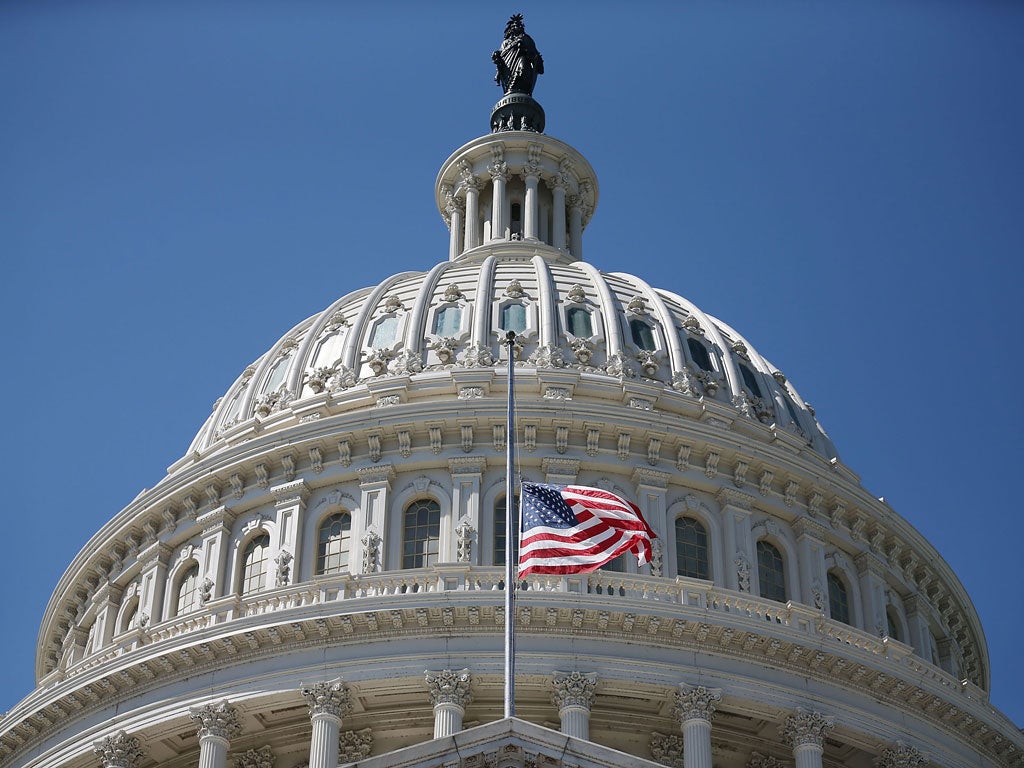US Shutdown: What happens now the government can't pay the bills??

Your support helps us to tell the story
From reproductive rights to climate change to Big Tech, The Independent is on the ground when the story is developing. Whether it's investigating the financials of Elon Musk's pro-Trump PAC or producing our latest documentary, 'The A Word', which shines a light on the American women fighting for reproductive rights, we know how important it is to parse out the facts from the messaging.
At such a critical moment in US history, we need reporters on the ground. Your donation allows us to keep sending journalists to speak to both sides of the story.
The Independent is trusted by Americans across the entire political spectrum. And unlike many other quality news outlets, we choose not to lock Americans out of our reporting and analysis with paywalls. We believe quality journalism should be available to everyone, paid for by those who can afford it.
Your support makes all the difference.There's was much foreboding in the Washington air over the prospect of a federal government shutdown. But what happens now that the government has been forced to rein in all its non-essential spending?
Here, we list some of the way ordinary Americans will feel its effects
Federal employees
Around 800,000 of the 2.1 million people working directly for the government providing public services are expected to be furloughed - or told to stay at home on no pay until the shutdown is over. There's always the prospect of back pay for earnings lost to congressional squabbling, but there's no guarantee.
The rules around crises of this sort say all federal workers should be classified as "essential" or "non-essential", so that the most important services aren't suspended in the event of a shutdown. So police, military, postal service, etc - who are classed as "essential" - will carry on as normal. The so-called "non-essentials" are allowed to work no more than four hours on shutdown-related activities before being furloughed.
As for Americans who want to get a passport, the State Department says it has some money left over from its last payment from government for consular duties, which they will spend until it runs out.
Washington, D.C.
As a federal district, the city depends on the federal government for permission to spend money. In the event of a shutdown, services like rubbish collection, street cleaning, and libraries would be suspended. The National Zoo will also be closed.
US military
Though military personnel stay on duty, their paycheques would be delayed and about half of the Defence Department's civilian staff would be furloughed. Troops could stop getting paid from mid-October, and would get retroactive pay once government starts up again.
Space
Most Nasa employees would similarly told to stay at home, but Mission Control in Houston, Texas, and elsewhere will continue to assist the International Space Station. The National Weather Service and National Hurricane Centre would keep doing their jobs.
Travel
Airport security and air traffic control - both supplied by federal government - will carry on as normal, but airports have warned passengers to expect delays.
National Parks
During the previous shutdown, spanning 21 days of 1995 and 1996, all 59 of the country's national parks were closed. This will happen again, with campers already in the parks given two days to leave.
Politicians
The salaries of senators, representatives, and President Barack Obama will be unaffected by any shutdown.
Join our commenting forum
Join thought-provoking conversations, follow other Independent readers and see their replies
Comments